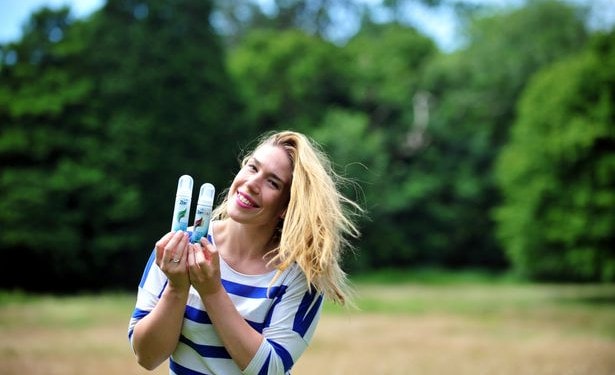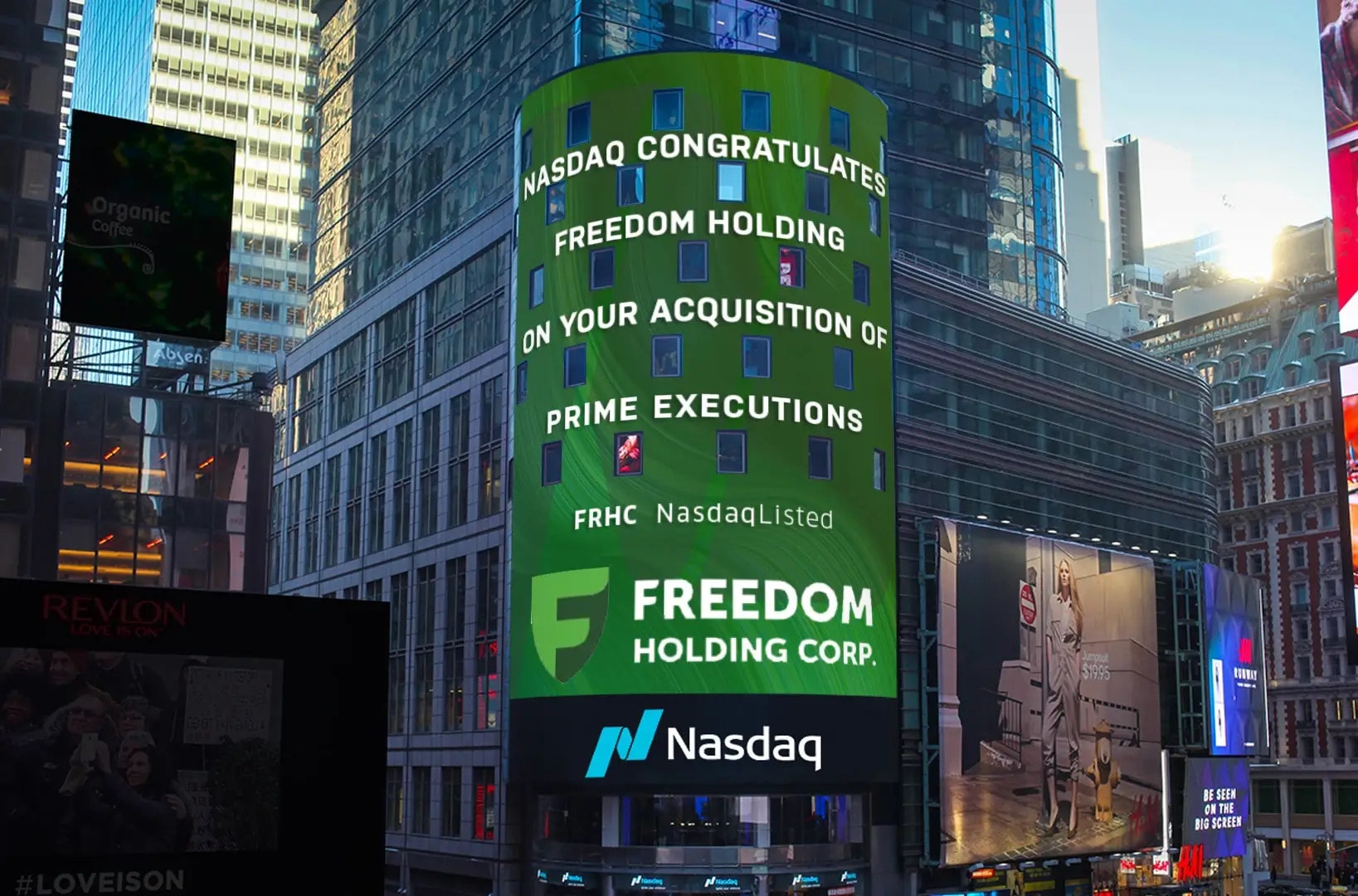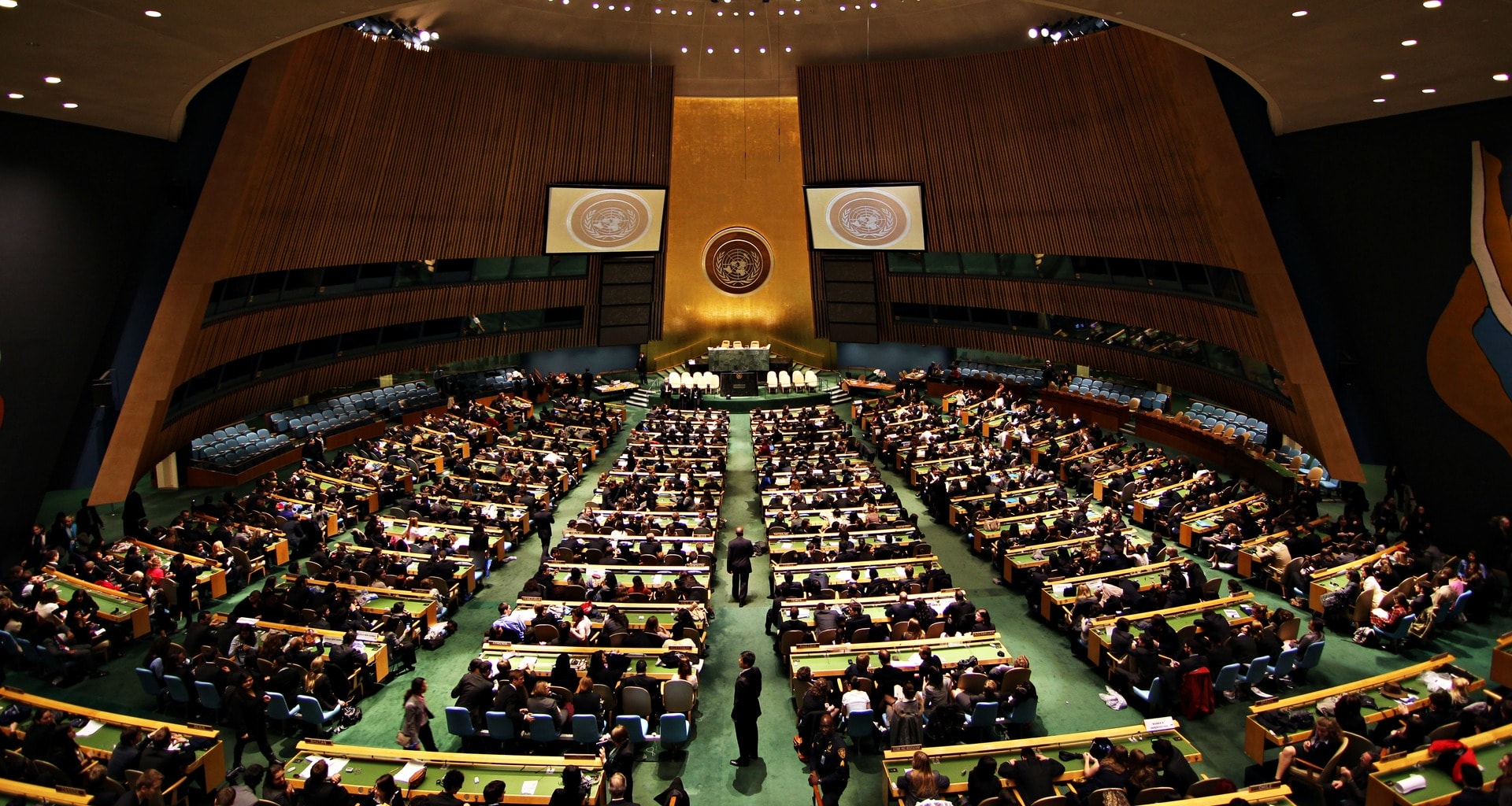Efforts to save water in every department of its use are becoming a top priority. In terms of sanitation in the NHS and cleaning bed-ridden patients, showers and baths are often a lengthy process requiring huge amounts of water to get the job done.
Waterless Limited is a UK based manufacturer of a wide range rinse-free bathing products. From its headquarters in Stroud, Gloucestershire Waterless Ltd & sales office in Swansea, they distribute our products all over the world and now supplies rinse free shampoos and skin cleansers to the NHS.
Waterless has identified a need and a challenge in one, and developed a product aimed at combatting both. I spoke to Jessica Efford, senior hygiene specialist at Waterless, to further understand the company and the challenges it was born out of.
Q: How did the idea for Waterless originate? And how does sustainability fit into the equation?
JE: We are a family business, and, our mother who is a NHS sister, mentioned how time consuming and sometimes frequent it was to bath immobile patients. We came across a product used by astronauts to wash without water, but it contained chemicals such as parabens. So we decided to make a superior version that was a kind and gentle, towel-off wash with a pleasant fragrance. With no rinsing or additional water required towel off shampoos and soaps improve patient dignity and wellbeing, whilst vastly reducing washing times.
We manufacture in the UK and started with an online shop, however we soon found many people were purchasing for festivals so we looked into the festival shower process and found that it was not great environmentally, often transporting grey water out in tankers, digging holes, disturbing nature and using lots of chemicals. By using our lines this removes much of this need. We always use recyclable plastics wherever possible and only choose to develop products that save water, save time, and reduce the impact on nature.
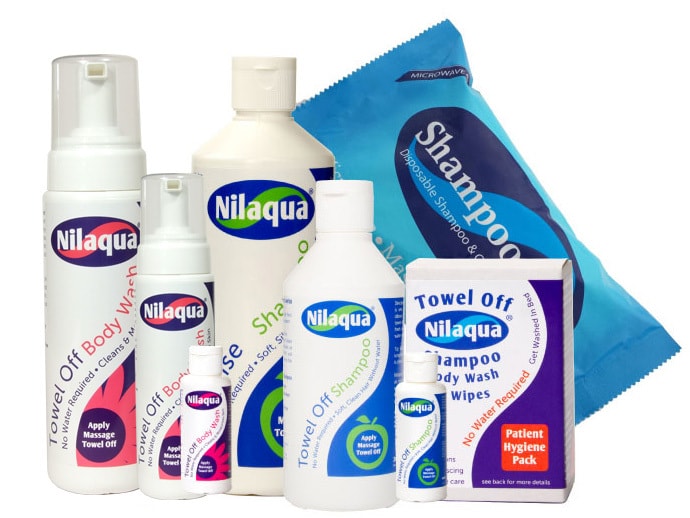
In the photo: Waterless products in coalition with Niqaqua Credit: Waterless
Q: How does Waterless adhere to its values and mission while also staying competitive? Is there a unique business model that you use?
JE: We won’t compromise quality or choose inferior non-sustainable ingredients but we do follow ‘lean’ manufacturing principles and recycle everything we can, including all and any packaging materials. We also pride ourselves on being inclusive i.e. vegan friendly and suitable for all religions, ethnicities, skin types and virtually all ages (18 months onward).
Q: Are there any unique challenges for sustainability in the water industry? How does Waterless overcome these challenges?
JE: Water management is one of the prevalent modern day challenges, as increases in population, human activity and climate change, has made water a scarce resource and a growing concern for many nations. The products massively reduce your water usage, for example even the average eight-minute shower uses around 62 litres of hot water, and some power showers can use up to 136 litres, compared with an average bath’s 80 litres. Compare that with 50-100ml of our towel off shampoo and similar amount of body wash.
Q: Were there any major milestones in your journey to where you are today? Where do you see the direction of the company headed in the future?
JE: The hardest part of launching a product is education, as soon as you say “no water required” people’s minds jump to dry shampoo, then when you say it’s a wet shampoo that you just towel off, people are skeptical until they try it. Getting into the NHS has probably been the biggest milestone. We are experiencing solid steady growth at the moment, but as more and more of the high street and major multiples recognize the benefits of the range, it’s set to become a global brand. We have produced three ranges Zerreau for the High Street (foaming mousses), Pits&Bits for the Camping/Outdoors sector and Nilaqua for the Family/Healthcare sector (although that does include a dog shampoo too).
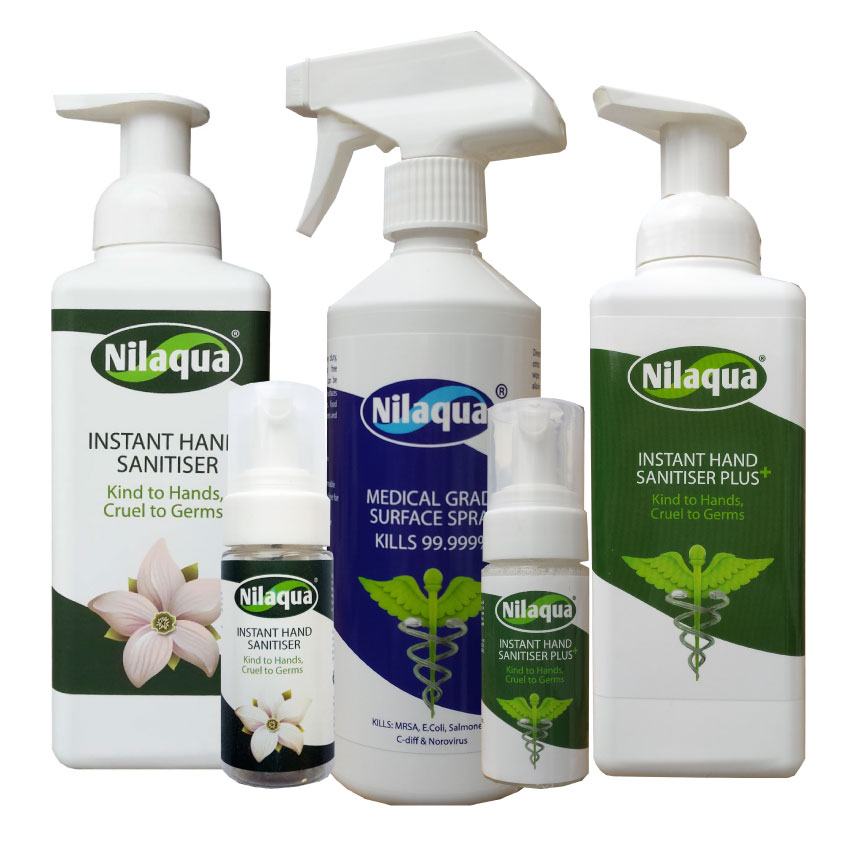
In the photo: Waterless products Credit: Waterless
Q: What do you think is the future of sustainability, particularly relating to the water industry?
JE: Things definitely have to change, all the industries have to work together, as the global population continues to grow necessity will become the mother of invention and products like ours will come to the fore. When the water treatment companies hike prices up I think there will be an initial reaction to harvest more sea water using desalination plants like they do in hotter climates, but the sustainable answers will come from ways to use less water by collecting and recycling more water in the homes, and there are lots of new developments in the Eco house arena.
Editors note: The opinions expressed here by Impakter.com columnists are their own, not those of Impakter.com


